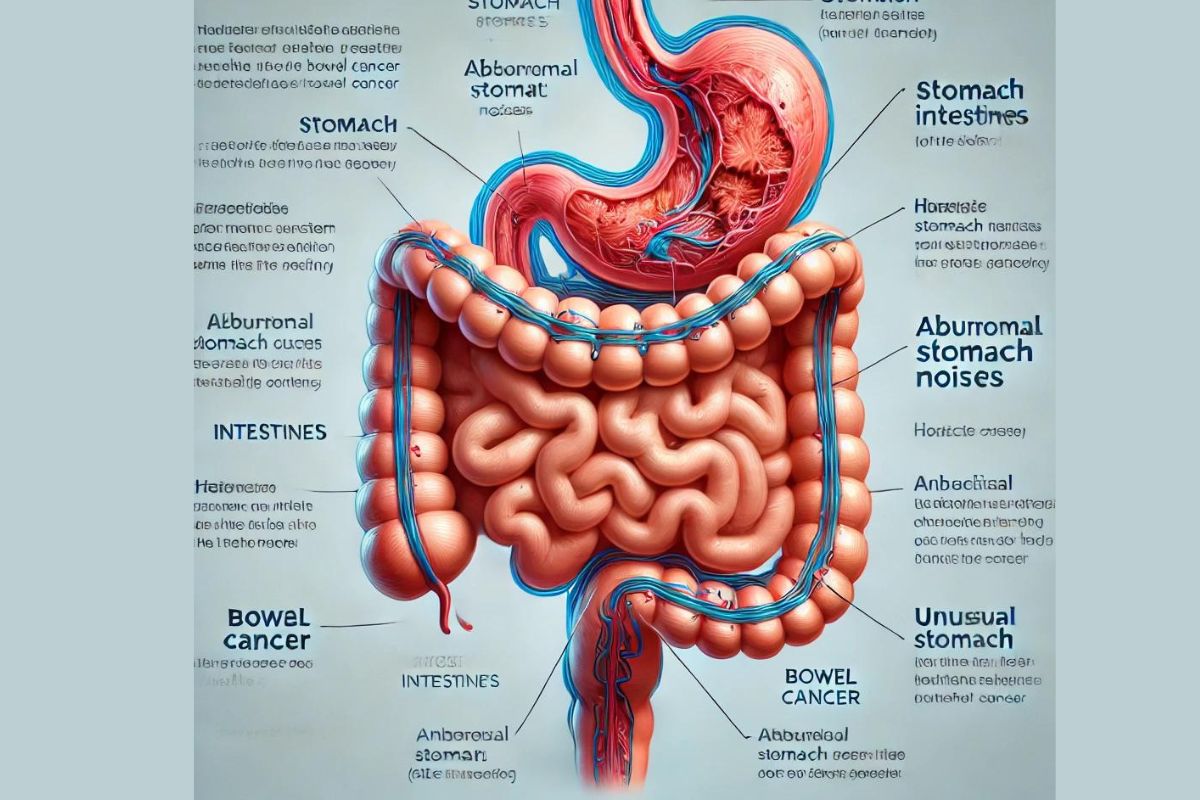CANCER
NOT ALL WOMEN CHOOSE RECONSTRUCTION AFTER MASTECTOMY; THE OPTIONS ARE MANY – CHICAGO TRIBUNE

Not all women choose reconstruction after mastectomy; the options are many – Chicago Tribue
BY ALEXIA ELEJALDE-RUIZ
CHICAGO TRIBUNE

CANCER
Prostatectomy: Understanding the Procedure and Its Benefits

Prostatectomy is a surgical procedure commonly performed to treat prostate-related conditions, particularly prostate cancer. This operation involves the removal of all or part of the prostate gland, depending on the severity of the condition.
In this article, we will explore what prostatectomy entails, the different types of the procedure, the recovery process, and why Turkey has become a popular destination for individuals seeking this treatment.
What is Prostatectomy?
Prostatectomy refers to the surgical removal of the prostate gland, which is located below the bladder and in front of the rectum in men. This gland plays a crucial role in the production of semen. The procedure is typically recommended for patients diagnosed with prostate cancer or benign prostatic hyperplasia (BPH), a non-cancerous enlargement of the prostate that can cause urinary issues.
Types of Prostatectomy
There are several types of prostatectomy, each suited to different medical conditions and the extent of the problem:
- Radical prostatectomy :
This is the most common form of prostatectomy and is primarily used to treat prostate cancer. It involves the complete removal of the prostate gland along with some surrounding tissues, including the seminal vesicles and possibly lymph nodes. It is performed either through traditional open surgery, laparoscopic surgery, or robot-assisted surgery.
- Simple prostatectomy :
This procedure is typically performed to treat BPH rather than cancer. In this surgery, only the part of the prostate that is causing urinary obstruction is removed, leaving the rest of the gland intact.
- Laparoscopic or Robotic Prostatectomy:
These minimally invasive procedures use small incisions and a camera to guide the surgeon. Robotic prostatectomy, in particular, allows for more precision and is associated with shorter recovery times and less blood loss compared to traditional open surgery.
Recovery after prostatectomy
Recovery after prostatectomy varies depending on the type of surgery performed and the patient’s overall health. Generally, patients can expect a hospital stay of a few days, with most people being able to return to their normal activities within 4 to 6 weeks. It is common to experience some urinary incontinence and erectile dysfunction immediately after surgery, but these side effects often improve over time with appropriate treatment and rehabilitation.
Patients are encouraged to follow a healthy lifestyle to promote healing, which includes maintaining a balanced diet, staying hydrated, and gradually increasing physical activity. Follow-up care is crucial to monitor for any signs of cancer recurrence (if applicable) and to ensure that the patient is recovering well.
Why choose Turkey for prostatectomy?
Turkey has become a popular destination for medical tourism, offering high-quality prostatectomy procedures at a fraction of the cost compared to many Western countries. The country boasts state-of-the-art hospitals and highly trained surgeons, many of whom have international certifications and expertise in advanced surgical techniques, including robotic and laparoscopic prostatectomy. In addition to the high standard of care, Turkey provides access to medical services in Turkey that cater to international patients, ensuring a smooth and efficient healthcare experience.
In addition to the high standard of care, you can check the prices of prostatectomy in Turkey, which are considerably more affordable than in other countries, making it an attractive option for many international patients seeking affordable medical treatments without compromising on quality.
Conclusion
Prostatectomy is a critical procedure for treating prostate cancer and BPH, and with the advancement of minimally invasive techniques, the surgery has become safer and more effective. For individuals seeking affordable yet high-quality treatment, Turkey offers a viable option. With world-class healthcare facilities, skilled surgeons, and lower treatment costs, Turkey continues to be a leading destination for medical tourism, ensuring patients receive the best possible care and outcomes.
CANCER
Dorsten vs Fresno Pollution Comparison Chart: Air Quality and Environmental Impact Insights

As environmental awareness grows globally, cities worldwide are increasingly measured and compared based on their pollution levels and air quality standards. Dorsten, Germany, and Fresno, California offer a fascinating comparison, each reflecting unique environmental circumstances, pollution factors, and air quality metrics. By analyzing these aspects through a Dorsten vs Fresno pollution comparison chart, we can understand how these two cities fare against each other on issues like air quality, water pollution, noise, and greenhouse gas emissions.
Introduction to Dorsten and Fresno: A Tale of Two Cities
Dorsten, located in North Rhine-Westphalia, Germany, is a small city with a strong focus on community well-being and a longstanding commitment to environmental health. However, Fresno grapples with substantial air pollution challenges, largely stemming from agricultural dust, traffic emissions, and a location prone to temperature inversions, which trap pollutants in the valley.
Comparing Pollution Levels: Dorsten vs Fresno Pollution Comparison Chart
The following pollution metrics provide a snapshot of the environmental challenges and air quality in Dorsten and Fresno. Factors such as air and water pollution, waste management, and noise pollution levels reveal the overall environmental health of each city.
| Pollution Factor | Dorsten, Germany | Fresno, California, USA |
|---|---|---|
| Air Quality (AQI) | Moderate (35-50 AQI) | Poor (60-150 AQI) |
| PM2.5 Levels | Low to Moderate | High, exceeding WHO limits |
| Vehicle Emissions | Low to Moderate | High due to traffic density |
| Industrial Pollution | Low to Moderate | Moderate |
| Agricultural Pollution | Low | High due to dust and fertilizers |
| Water Quality | High (well-regulated) | Moderate to low, contamination issues |
| Noise Pollution | Moderate | High due to traffic |
| Greenhouse Gas Emissions | Low | High due to urban and agricultural factors |
Air Quality Analysis: Understanding AQI and Particulate Matter
One of the most critical elements of comparing Dorsten and Fresno is their Air Quality Index (AQI) and PM2.5 particulate levels.
- Dorsten Air Quality: Dorsten enjoys a relatively clean air quality due to lower vehicle emissions and a more stable industrial footprint. AQI levels typically range from 35 to 50, indicating moderate air quality, with PM2.5 levels remaining within safe WHO guidelines.
- Fresno Air Quality: Fresno faces significant air quality challenges. Due to heavy agricultural activity, transportation emissions, and frequent temperature inversions, Fresno’s AQI often ranks in the “Unhealthy” range, with PM2.5 levels far exceeding safe limits, particularly in summer months.
Vehicle Emissions: A Key Pollutant in Both Cities
- Dorsten’s Emission Control: With efficient public transportation and a focus on emissions standards, Dorsten has a relatively low level of vehicle emissions. Efforts to encourage electric vehicles and public transit have helped reduce emissions significantly.
- Fresno’s Vehicle Emissions Challenge: Fresno’s car-centric infrastructure contributes heavily to its pollution levels. High vehicle emissions are compounded by the valley’s topography, which traps pollutants and hinders air circulation.
Water Quality and Water Pollution Concerns
- Dorsten Water Quality: In Germany, strict water regulations ensure high water quality across cities, including Dorsten. Water sources are well-protected, and pollution from industries is monitored and regulated.
- Fresno Water Quality: Fresno, however, contends with occasional water contamination, largely from agricultural runoff and groundwater pollution. Efforts to improve water quality include investment in water treatment facilities and groundwater management.
Noise Pollution Levels in Dorsten and Fresno
- Noise in Dorsten: Despite its industrial base, Dorsten maintains moderate noise pollution levels. Urban planning includes noise reduction strategies like sound barriers along roads, zoning regulations, and traffic calming measures.
- Noise in Fresno: Fresno’s noise pollution levels are considerably higher, impacted by both traffic and agricultural machinery. With a high number of vehicles and busy roadways, noise levels can be disruptive, especially in densely populated urban areas.
Agricultural Pollution: Fresno’s Unique Challenge
Fresno’s agricultural productivity is a double-edged sword; while it contributes to the local economy, it also introduces pollutants like pesticides, fertilizers, and dust. These contribute to air and water pollution, making it challenging to maintain quality levels within healthy thresholds. Dorsten, on the other hand, has a much smaller agricultural sector, reducing its exposure to these pollutants.
Greenhouse Gas Emissions and Climate Impact
- Dorsten’s Low Emissions: Germany’s policies on reducing greenhouse gas emissions have influenced Dorsten’s relatively low carbon footprint. Efficient energy practices and a commitment to renewable energy have helped to reduce emissions.
- Fresno’s High Emissions: In Fresno, a combination of transportation, agriculture, and energy usage drives up greenhouse gas emissions. California has launched several initiatives to reduce emissions, but Fresno continues to face challenges due to its dependency on vehicle transport and agriculture.
Health Impliceations of Pollution in Dorsten and Fresno
Pollution affects halth in both cities, but the impacts are more severe in Fresno due to its higher levels of pollutants. Fresno residents frequently report issues related to respiratory health, while Dorsten benefits from its generally lower pollution levels, with fewer air quality-related health issues.
Conclusion: Dorsten vs Fresno – A Tale of Two Pollution Landscapes
In summary, while both Dorsten and Fresno are affected by pollution, they face vastly different environmental challenges. Dorsten’s controlled pollution levels, bolstered by regulatory standards, reflect a proactive stance on environmental health. Fresno, however, grapples with substantial air and water pollution due to high levels of agricultural activity and vehicle emissions. Both cities are making strides to address these issues, but the path to a cleaner environment will vary greatly based on their unique circumstances.
Also Read: Katerina Goltzwart: Shaping the Future of Art and Vision
FAQs
What is the main cause of pollution in Fresno?
The primary sources of pollution in Fresno are vehicle emissions, agricultural dust, and industrial activities, all of which are exacerbated by the valley’s geography.
Is the air quality in Dorsten better than in Fresno?
Yes, Dorsten’s air quality is generally better than Fresno’s, with lower levels of particulate matter and a healthier AQI.
How does agriculture contribute to Fresno’s pollution?
Agriculture in Fresno contributes significantly to pollution through pesticide use, fertilizer runoff, and dust particles that increase PM2.5 levels and degrade air and water quality.
What steps are being taken to reduce pollution in both cities?
Dorsten emphasizes emission control and renewable energy, while Fresno is investing in emissions reduction and water quality initiatives, although its agricultural sector remains a major source of pollution.
Why is Fresno more affected by temperature inversions?
Fresno’s valley location creates temperature inversions, trapping pollutants close to the ground and leading to poor air quality, especially during warmer months.
How do vehicle emissions compare between Dorsten and Fresno?
Dorsten has lower vehicle emissions due to efficient public transportation, while Fresno’s higher emissions are due to its car-reliant infrastructure.
CANCER
Shocking Signs of Bowel Cancer Stomach Noises Revealed

Stomach noises are something we’ve all experienced—those awkward gurgles during a quiet meeting or the unexpected rumbles after lunch. But sometimes, these noises might be more than just digestion at work. When stomach sounds persist, become louder, or are accompanied by other unusual symptoms, it’s time to pay attention. Here’s why: bowel cancer, a condition that affects over 1.8 million people globally every year, can sometimes disrupt the digestive system in subtle ways.
If you’ve been noticing stomach gurgling and gas, along with other changes in your digestion, you might wonder, could these noises be more than just a quirk of your gut? In this article, we’ll unpack what your body could be trying to tell you. You’ll learn how to differentiate between normal digestion and signs of something more serious, like bowel cancer or pancreatic issues. Let’s dive deep into the science, cut through the noise, and get you the answers you need. Stay informed, and take control of your health.
Bowel Cancer Stomach Noises: What Causes Them?
Stomach noises are the result of movement within the intestines and stomach. These sounds occur as food, liquid, and gas pass through the gastrointestinal (GI) tract. While occasional gurgling is natural, ongoing or loud stomach noises could indicate a gastrointestinal disorder. In the context of bowel cancer, changes in digestion due to blockages or tumors can sometimes alter these noises.
People often turn to online forums like “bowel cancer stomach noises Reddit” to share their experiences and seek advice. Many report persistent gurgling or abnormal sounds that accompany other symptoms, such as bloating, constipation, or diarrhea. If you notice unusual bowel activity and accompanying noises, it’s worth considering if it could be linked to more severe conditions like bowel cancer.
Bowel Cancer Stomach Symptoms
Bowel cancer, or colorectal cancer, typically develops in the large intestine or rectum and can interfere with the normal function of the digestive system. It’s important to recognize the symptoms early for effective treatment. Bowel cancer stomach symptoms include:
- Persistent bloating
- Abdominal pain or cramps
- Blood in the stool
- Changes in bowel habits, such as prolonged constipation or diarrhea
- Unexplained weight loss
In some cases, individuals may notice excessive stomach gurgling and gas after eating. If these symptoms persist, it may be time to consult a healthcare provider. On the NHS website, there’s valuable information on recognizing and treating bowel cancer symptoms. However, stomach noises alone are not enough to diagnose cancer. Other associated symptoms must be present to raise concern.
Bowel Cancer Stomach Noises After Eating
If you’re experiencing loud or frequent stomach noises after eating, it could indicate issues with digestion. In bowel cancer cases, a tumor in the intestines can obstruct food’s passage, leading to a build-up of gas, causing bloating and gurgling noises. These symptoms can also lead to discomfort or pain after meals.
People often ask, “When should I be worried about stomach noises?” If your post-meal gurgling is accompanied by other bowel cancer symptoms like blood in the stool or significant changes in bowel habits, it’s crucial to consult with a healthcare professional. Catching bowel cancer early is key to successful treatment.
Pancreatic Cancer Stomach Noises: Similar but Different
While this article focuses on bowel cancer, it’s worth mentioning that stomach noises can also be a symptom of pancreatic cancer. Like bowel cancer, pancreatic cancer can affect digestion, causing stomach gurgling and gas, especially if the tumor presses on nearby organs or blocks the flow of digestive enzymes. It’s essential to understand that pancreatic and bowel cancers are different, though they share some overlapping symptoms, particularly in advanced stages.
In pancreatic cancer, symptoms often include:
- Jaundice (yellowing of the skin and eyes)
- Pain in the upper abdomen radiating to the back
- Fatigue
- Dark urine
- Pale stools
Although less common than bowel cancer, pancreatic cancer remains a critical consideration when diagnosing unexplained gastrointestinal symptoms.
Gastritis Stomach Noises: Another Possible Explanation
Before jumping to conclusions about cancer, it’s also important to consider other conditions that cause stomach gurgling and gas, like gastritis. Gastritis is the inflammation of the stomach lining, often due to infection, excessive alcohol consumption, or long-term use of certain medications.
Gastritis can result in symptoms such as:
- Indigestion
- Abdominal pain
- Nausea
- A burning sensation in the stomach
In some cases, stomach noises are heightened as the digestive system becomes inflamed and irritated. If these symptoms sound familiar but don’t align with bowel cancer, consider discussing the possibility of gastritis with your doctor.
Bowel Cancer Stomach Noises NHS: Trusted Information
For those in the UK, the NHS provides an extensive resource on bowel cancer stomach noises and related symptoms. The NHS emphasizes that while occasional stomach sounds are normal, persistent changes, particularly when coupled with other red flags like blood in the stool, should be addressed immediately.
The NHS also highlights the importance of routine screenings, especially for individuals over 50 or with a family history of bowel cancer. Early detection through tests like colonoscopies can make a significant difference in treatment outcomes.
Bowel Cancer Stomach Noises Reddit: A Personal Perspective
Online forums like Reddit offer a platform for individuals to share their experiences with bowel cancer symptoms, including stomach noises. A search for “bowel cancer stomach noises Reddit” reveals a range of discussions where people describe gurgling, bloating, and changes in bowel habits. While personal anecdotes should never replace professional medical advice, these forums can provide comfort for those who feel isolated in their symptoms.
Several users on Reddit mention that stomach noises after eating were one of the first signs they noticed before being diagnosed. If you find that your experiences align with others, it might be time to seek a medical evaluation.
When Should I Be Worried About Stomach Noises?
So, when should I be worried about stomach noises? If your stomach noises are occasional and painless, you probably don’t need to worry. However, if these noises persist and are accompanied by symptoms like abdominal pain, changes in bowel habits, or blood in the stool, it could be indicative of a more serious condition, including bowel cancer.
Here are some red flags that suggest you should consult a doctor:
- Persistent bloating or abdominal pain
- Changes in stool consistency or frequency
- Blood in your stool
- Unexplained weight loss
- Excessive gas or gurgling sounds that last for more than a few weeks
While stomach noises alone aren’t typically a cause for concern, they can be a clue when considered alongside other symptoms.
FAQs
What do bowel cancer stomach noises sound like?
Bowel cancer-related stomach noises are typically described as gurgling or rumbling sounds caused by gas buildup. They may be louder or more frequent after meals or during digestion.
Can stomach gurgling and gas be a sign of cancer?
Yes, stomach gurgling and gas can be a sign of cancer, particularly if accompanied by other symptoms like blood in the stool, abdominal pain, or unexplained weight loss.
Can pancreatic cancer cause stomach noises?
Yes, pancreatic cancer can cause stomach noises, especially if it impacts digestion by blocking digestive enzymes or pressing on nearby organs.
Is it normal to have stomach noises after eating?
It’s normal to experience some stomach noises after eating as your body digests food. However, if the noises are excessive or accompanied by pain, bloating, or changes in bowel habits, it’s worth investigating further.
How can I tell if my stomach noises are serious?
Stomach noises that persist for an extended period, particularly when paired with symptoms like blood in the stool, abdominal pain, or significant weight loss, warrant a visit to your doctor.
What conditions other than bowel cancer can cause stomach noises?
Other conditions that can cause stomach noises include gastritis, irritable bowel syndrome (IBS), food intolerances, and infections. It’s essential to consider a broad range of possibilities when evaluating stomach noises.
Also Read: NOT ALL WOMEN CHOOSE RECONSTRUCTION AFTER MASTECTOMY; THE OPTIONS ARE MANY – CHICAGO TRIBUNE
Conclusion
While stomach noises are typically harmless, persistent or unusual sounds, particularly when paired with other symptoms, could indicate a more serious issue like bowel cancer. By paying attention to additional signs such as abdominal pain, blood in the stool, and changes in bowel habits, you can catch potential problems early.
If you’ve noticed stomach gurgling and gas and are concerned, don’t hesitate to seek medical advice. Whether it’s due to bowel cancer, gastritis, or another condition, early detection and treatment can make all the difference.
-

 NEWS1 year ago
NEWS1 year agoSearchinventure: Redefining the Digital Experience
-

 HEALTH1 year ago
HEALTH1 year agoUnveiling the //vital-mag.net blog: Your Gateway to Health and Wellness
-

 NEWS1 year ago
NEWS1 year agoThe Alicia Case in Atlanta: A Deep Dive
-

 FASHION2 years ago
FASHION2 years agoHow to Style Floral Long-Sleeve Homecoming Dresses for a Glamorous Look
-

 Pets1 year ago
Pets1 year agoUltimate Strength: Heavy-Duty Tactical Dog Collars for Large Breeds
-

 BUSINESS1 year ago
BUSINESS1 year agoPedro Vaz Paulo: A Visionary Business Consultant Driving Success
-

 NEWS1 year ago
NEWS1 year ago2023-1954: A Journey Through the Decades
-

 TECHNOLOGY2 years ago
TECHNOLOGY2 years agoThe Evolution of Technology: From 1954 to 2023